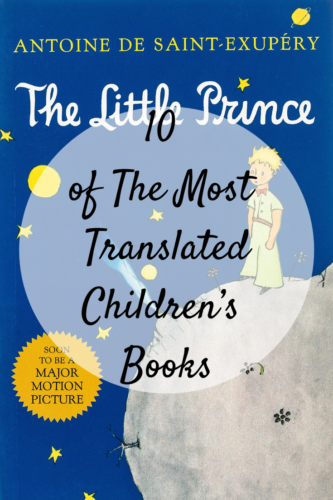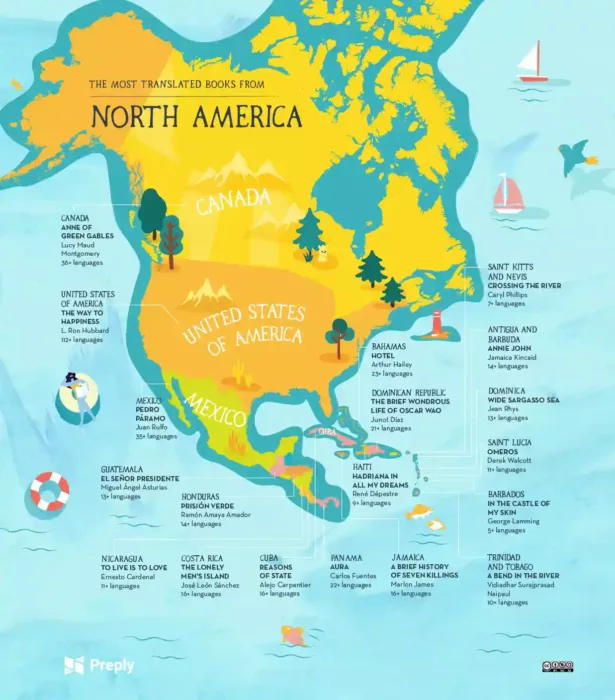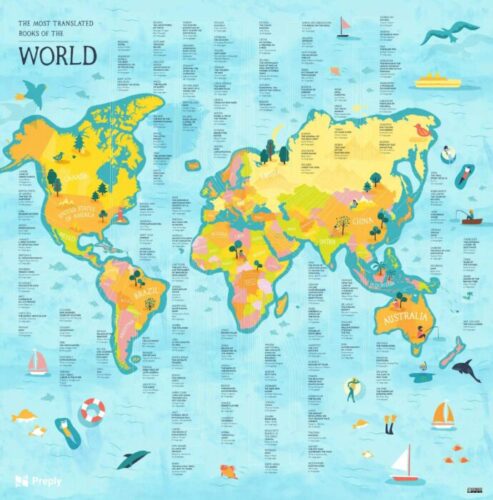
Have you ever read a book and discovered it was translated in another language as well? I remember working in Borders bookstore throughout college and people came in all the time asking to special order a book in a specific language. As an author to have your book published in other languages has to be pretty amazing.
A global language learning marketplace, Preply, has compiled a list of 10 of The Most Translated Children’s Books. These books are great options for families learning a new language as the books are available in so many language versions.
10 of The Most Translated Children’s Books
“The Little Prince” by Antoine de Saint- Exupéry is number one. It currently holds the Guinness record for the most translated author for the same book.
Here are the top 10 most translated children’s books per country:
- The Little Prince by Antoine de Saint-Exupéry (382+ languages) – France
- The Adventures of Pinocchio by Carlo Collodi (300+ languages) – Italy
- Alice’s adventures in Wonderland by Lewis Carrol (175+ languages) – England
- Andersen’s Fairy Tales by Hans Christian Andersen (160+ languages) – Denmark
- Pippi Longstocking by Astrid Lindgren (70+ languages) – Sweden
- Heidi by Johanna Spyri (50+ languages) – Switzerland
- Anne of Green Gables by Lucy Maud Montgomery (36+ languages) – Canada
- Bambi, a Life in the Woods by Felix Salten (33+ languages) – Austria
- Kumewawa, the Son of the Jungle by Tibor Sekelj (17+ languages) – Slovakia
- One Hundred Poems for Children by Oscar Alfaro (7+ languages) – Bolivia

I thought it was interesting to see that the most translated book from the United States is The Way to Happiness by Ron Hubbard.
Some interesting facts on how children learn languages:
- Language learning is an innate process babies are born to know how to do. All children, no matter which language their parents speak, learn languages in the same way. (source).
- When babies are born, they can hear and distinguish all the sounds in all the languages in the world. That’s about 150 sounds in about 6500 languages, though no language uses all of those sounds. The sounds a language uses are called phonemes and English has about 44. (source).
- You can help your child build language skills by reading to them. Have child-centric conversations with them as studies show that babies learn language best within a social context. (source).
Tips for learning a new language through reading:
- Read children’s books.
These books have shorter content, basic vocabulary, and simple sentences. Begin with the easiest reading material. If you’re an adult who wants to learn, don’t be prejudiced against children’s books as this is a great way to learn the basics.
- Consider reading parallel texts.
Get a book that is written in dual language. With these books, there are translations written right below the sentence you’re reading. This will save you time from finding the closest dictionary. It will also allow you to see how the grammar rules vary and you can notice similarities and differences.
- Read a lot!
If you’re learning a new language, it’s about quantity. If you don’t take everything in, don’t worry – keep going. The idea is to expose yourself to as much material as you can. You don’t need to understand everything. It’s more about practicing your contextualizing abilities and guessing what you’re reading about. Try to make out what’s actually happening overall.
- Read with intent
Just as you should try reading extensively, you should also try the technique of intensive reading. This means, being actively involved with what you’re reading and absorbing everything before moving on. If you don’t understand something – underlining the words, dog-ear pages, or writing your mnemonics to help.
- Read about what you or your children love
If your child loves music, then have them read a book in a different language that’s about music. If you love gardening, then find multilingual books about gardening. If you love cooking, you can find recipe books in the language you want to learn. This will help ensure you don’t get bored, as it’s not easy learning a new language and you might be tempted to give up.

Don’t miss this promotion from Preply for free language lessons:

From August 16th to October 24th, Preply is giving away a year of free lessons to 5 lucky winners. It’s easy to participate. Every lesson you take = 1 entry. The more lessons you take, the more chances you have to win. We’ll randomly draw a new winner every 2 weeks (https://preply.com/en/blog/win-100-hours/).







Leave a Reply